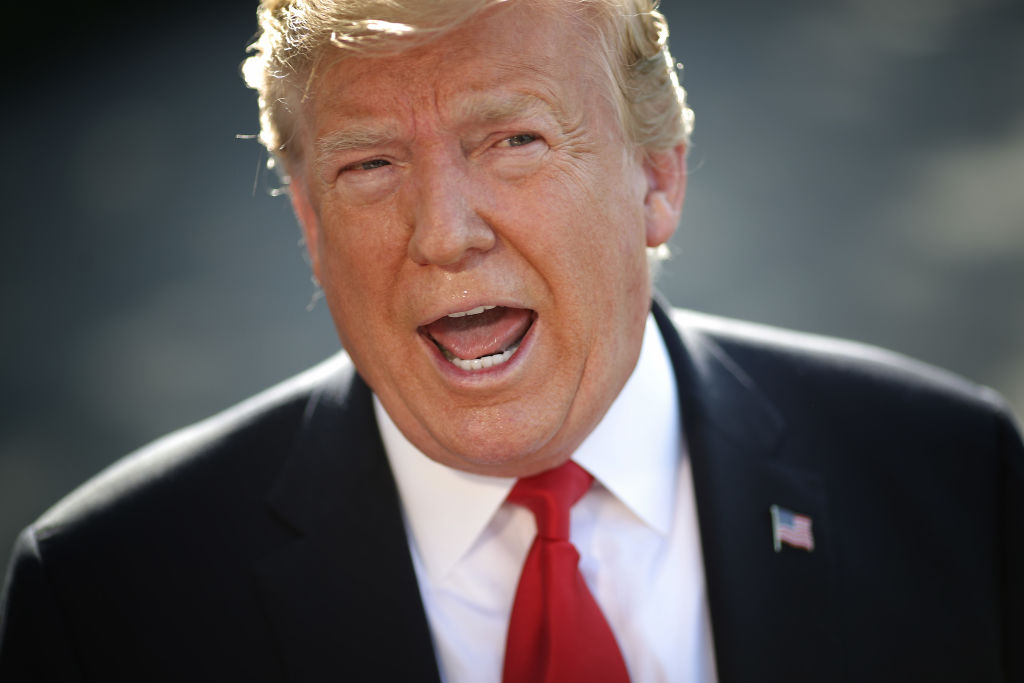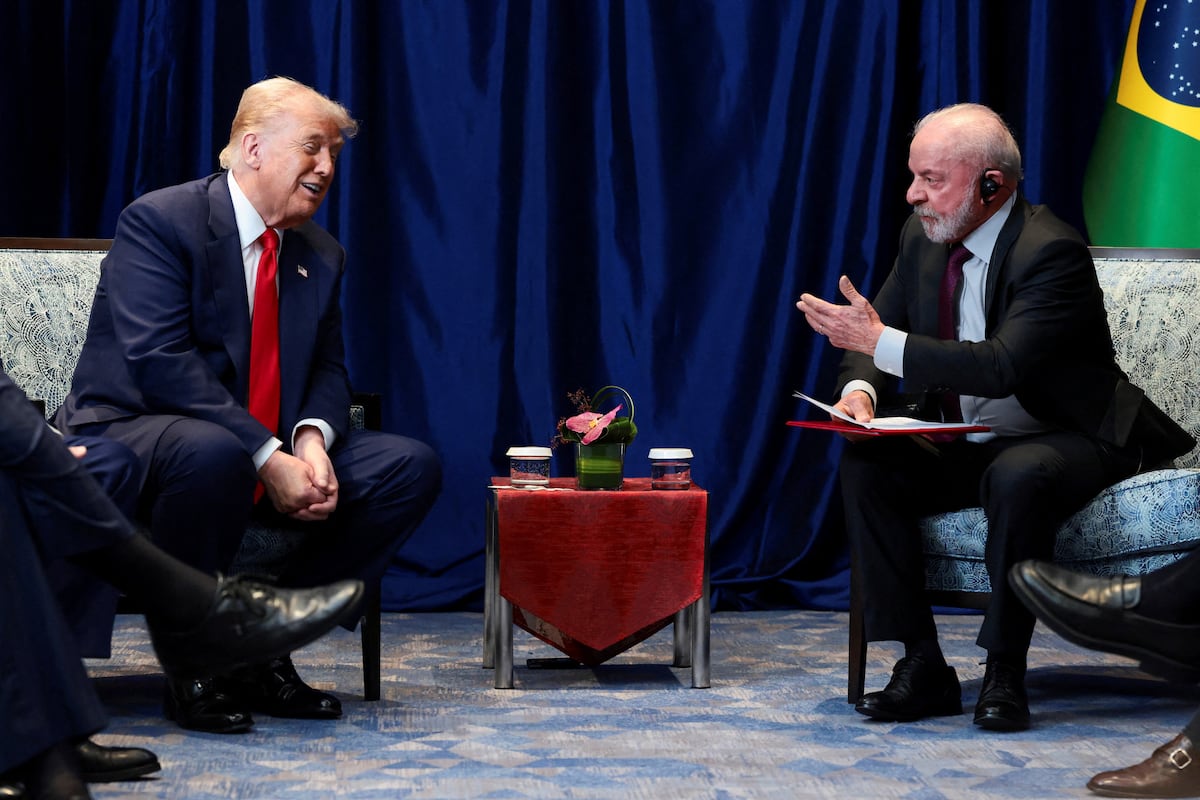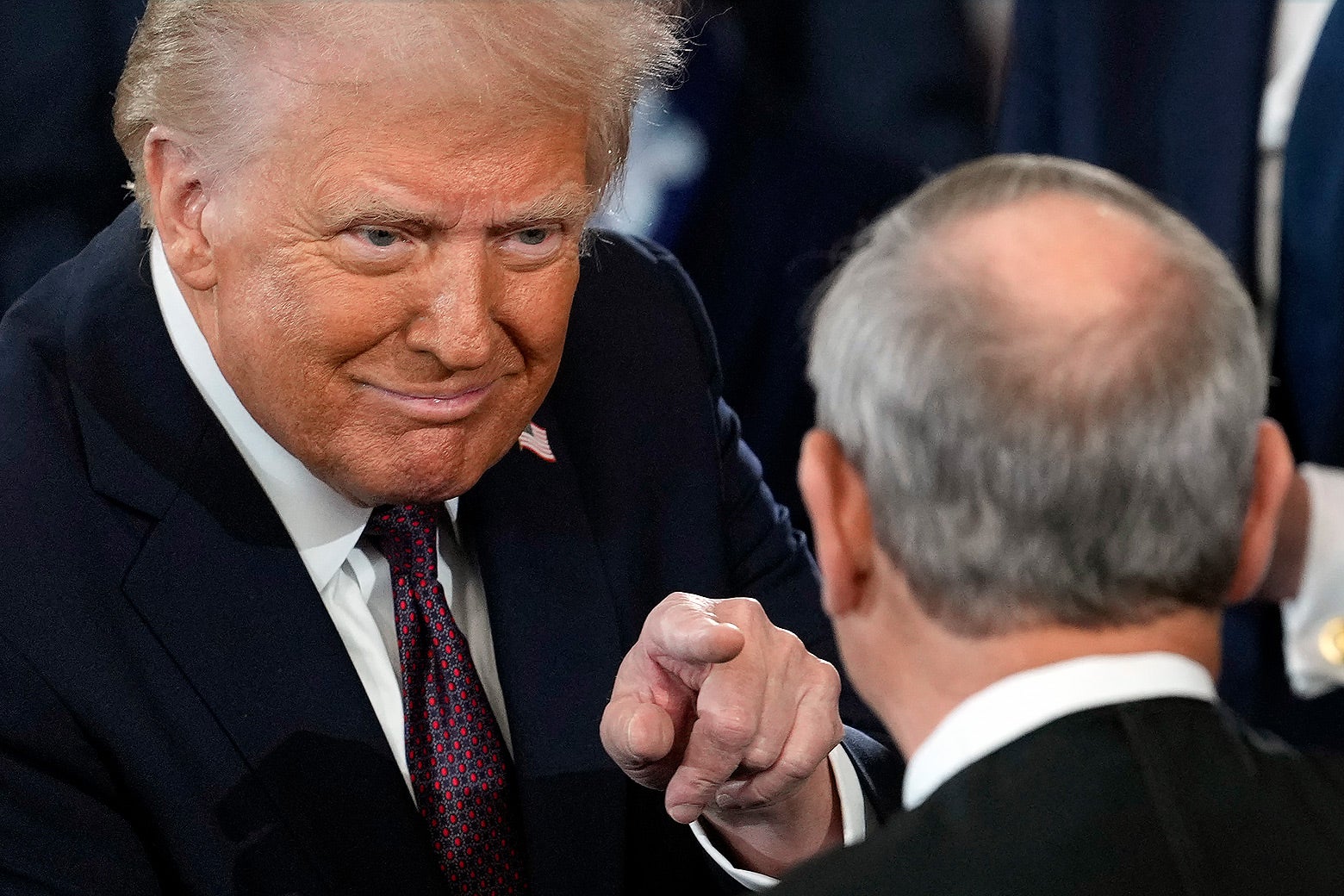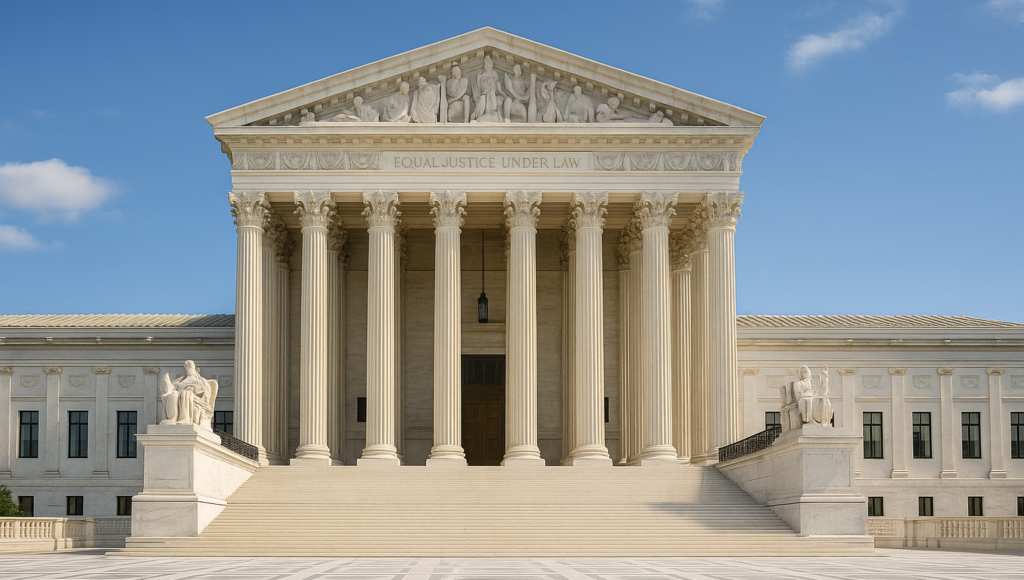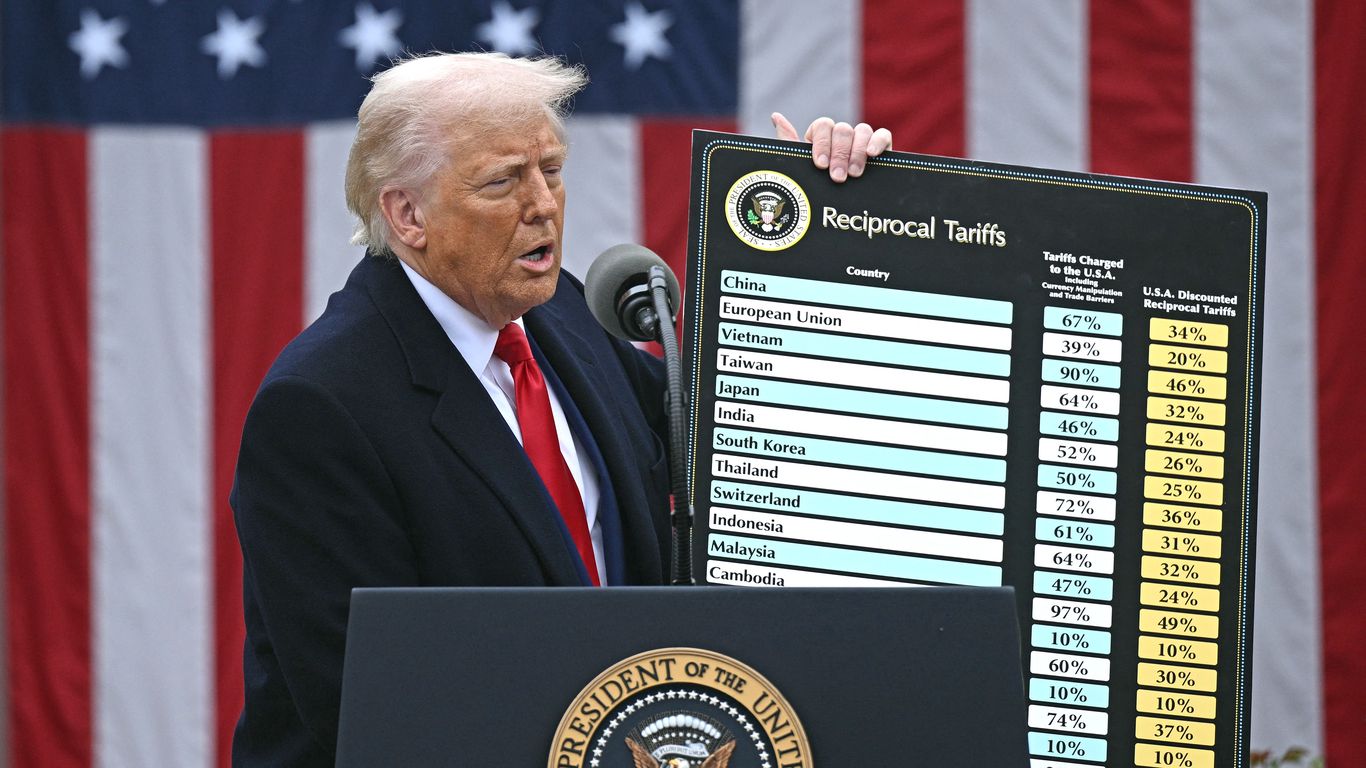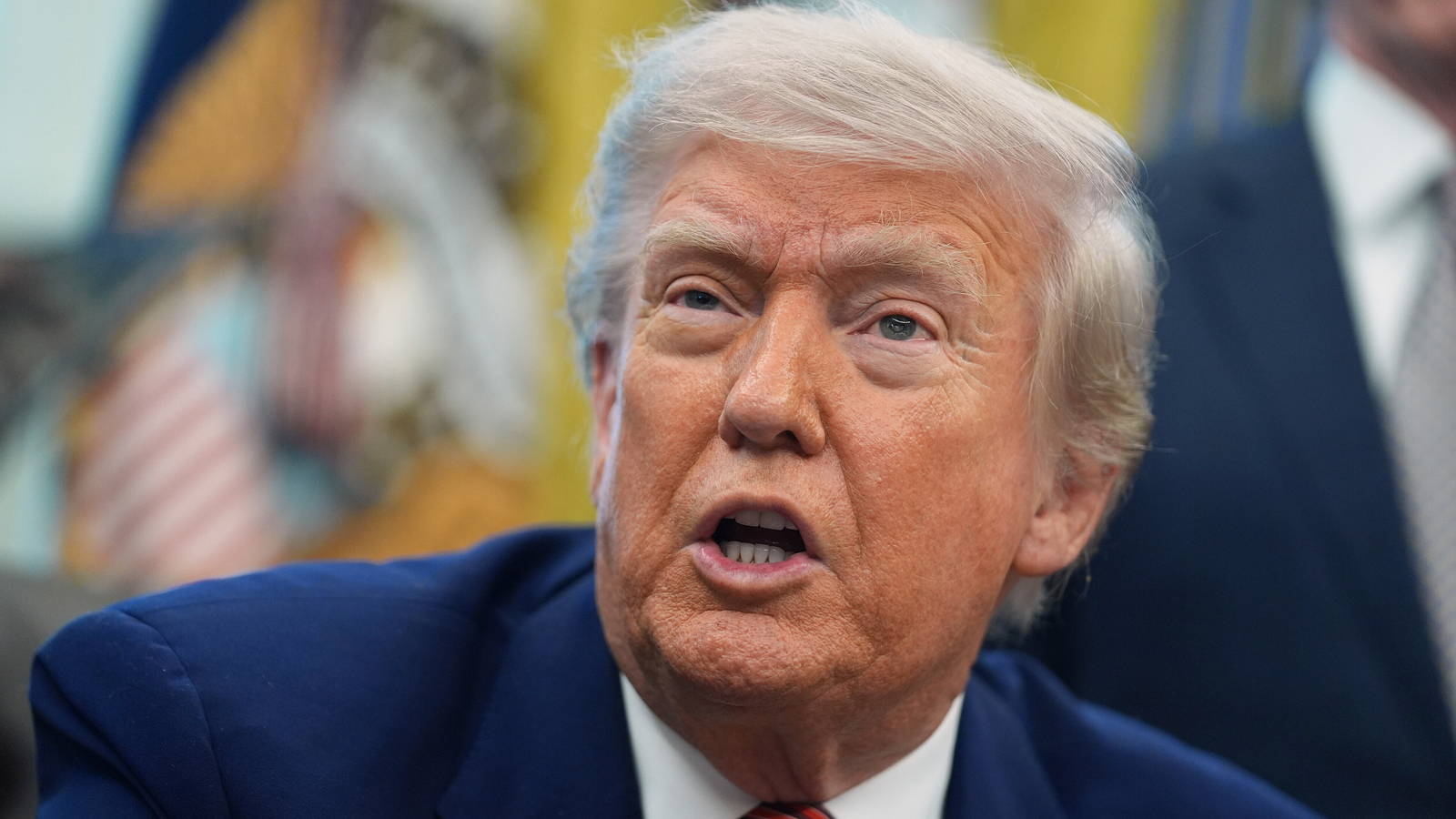#ieepa
#ieepa
[ follow ]
fromwww.theguardian.com
1 week agoTrump warns of complete mess' if supreme court rejects tariffs
Donald Trump has said it would be a complete mess if the US supreme court were to strike down his global trade tariffs. In a lengthy post on social media, the US president said WE'RE SCREWED if the supreme court rules against the tariffs, before the decision, which could come as soon as Wednesday. It is a crucial legal test of his controversial economic strategy and his power.
US politics
fromwww.theguardian.com
1 month agoCostco sues Trump administration over sweeping use of emergency tariff powers
the retail giant argued the Trump administration has misused the federal law, the International Emergency Economic Powers Act (IEEPA), it cited to impose the tariffs. IEEPA grants the president certain power, but they may only be exercised to deal with an unusual and extraordinary threat with respect to which a national emergency has been declared for purposes of this chapter and may not be exercised for any other purposes', Costco said in the lawsuit, quoting the law.
US politics
fromwww.mediaite.com
2 months agoYou Do!' Gorsuch Calls Out Trump Lawyer For Arguing Congress Can Hand Off' Power to Declare War to President
Supreme Court Justice Neil Gorsuch, who was nominated by President Donald Trump, battled Solicitor General D. John Sauer on Wednesday over the limits of executive power while hearing a case on the legality of Trump's sweeping tariffs. Sauer argued against lower court rulings that shot down Trump's use of emergency powers under the International Emergency Economic Powers Act (IEEPA) to levy sweeping tariffs on foreign countries a power solely granted to Congress in the Constitution.
Law
fromThe Atlantic
2 months agoWill the Supreme Court Side With Trump-Or Itself?
Today, the Supreme Court is hearing oral arguments in one of those rare cases that could reshape all three branches of government. The justices deciding Learning Resources, Inc. v. Trump, a challenge to the current tariff regime, could determine whether the imperial presidency is entrenched or arrested. They could either cajole Congress out of its dormancy or render it even more inert.
US politics
fromTruthout
2 months agoSupreme Court Tariffs Case Will Test Limits of Presidential Emergency Powers
On November 5, the Supreme Court will hear oral argument in a case testing the limits of presidential emergency powers. At issue is whether a president may use the International Emergency Economic Powers Act (IEEPA) to impose sweeping tariffs on imports from countries around the world. The stakes of this case reach far beyond trade policy. The Court's decision could shape whether the use of emergency powers to bypass Congress becomes a tool of routine governance, with profound implications for the constitutional separation of powers and limits on presidential authority.
US politics
fromAbove the Law
2 months agoMorning Docket: 10.29.25 - Above the Law
Meet the superstar team who have to convince the Supreme Court that the word "tariffs" does not appear in the IEEPA, which for some reason is an uphill battle. [ National Law Journal] Ninth Circuit will convene en banc to reconsider giving Trump the power to send troops to assassinate costumed frogs. [ CNN] Freshly pardoned former Binance chief threatens to sue Elizabeth Warren for saying
US politics
fromFortune
4 months agoTrump's trade adviser says tariffs aren't permanent after appeals court strikes down reciprocal duties
These tariffs apply to nearly all articles imported into the United States (and, in the case of the Reciprocal Tariffs, apply to almost all countries), impose high rates which are ever-changing and exceed those set out in the [U.S. tariff system], and are not limited in duration.
US politics
[ Load more ]
